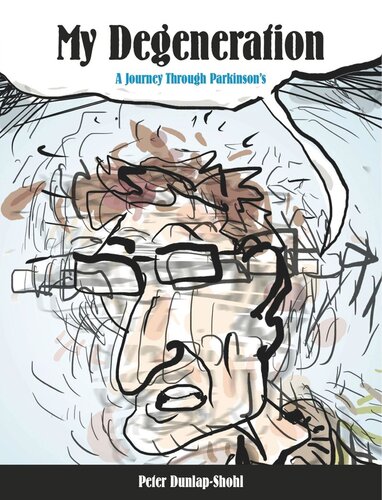

Most ebook files are in PDF format, so you can easily read them using various software such as Foxit Reader or directly on the Google Chrome browser.
Some ebook files are released by publishers in other formats such as .awz, .mobi, .epub, .fb2, etc. You may need to install specific software to read these formats on mobile/PC, such as Calibre.
Please read the tutorial at this link: https://ebookbell.com/faq
We offer FREE conversion to the popular formats you request; however, this may take some time. Therefore, right after payment, please email us, and we will try to provide the service as quickly as possible.
For some exceptional file formats or broken links (if any), please refrain from opening any disputes. Instead, email us first, and we will try to assist within a maximum of 6 hours.
EbookBell Team

4.7
16 reviewsHow does one deal with a diagnosis of Parkinson’s disease at the age of forty-three? My Degeneration, by former Anchorage Daily News staff cartoonist Peter Dunlap-Shohl, answers the question with humor and passion, recounting the author’s attempt to come to grips with the “malicious whimsy” of this chronic, progressive, and disabling disease. This graphic novel tracks Dunlap-Shohl’s journey through depression, the worsening symptoms of the disease, the juggling of medications and their side effects, the impact on relations with family and community, and the raft of mental and physical changes wrought by the malady.
My Degeneration examines the current state of Parkinson’s care, including doctor/patient relations and the repercussions of a disease that, among other things, impairs movement, can rob patients of their ability to speak or write, degrades sufferers’ ability to deal with complexity, and interferes with the sense of balance. Readers learn what it’s like to undergo a dramatic, demanding, and audacious bit of high-tech brain surgery that can mysteriously restore much of a patient’s control over symptoms. But My Degeneration is more than a Parkinson’s memoir. Dunlap-Shohl gives the person newly diagnosed with Parkinson’s disease the information necessary to cope with it on a day-to-day basis. He chronicles the changes that life with the disease can bring to the way one sees the world and the way one is seen by the wider community. Dunlap-Shohl imparts a realistic basis for hope—hope not only to carry on, but to enjoy a decent quality of life.